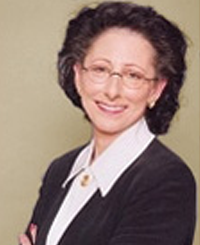Workplace Eldercare Programs – Getting the Support You Need
It is estimated that 65% of the workforce cares for chronically ill or
aging loved ones – a responsibility that often conflicts with work.
Unfortunately, most employees are reluctant to mention their eldercare
problems at work so they don\’t know what eldercare programs are
available. As a result, utilization of eldercare programs is often as
low as 1-2% – leaving many employers to believe that programs are not
needed, causing some employers to reduce or limit the workplace
eldercare options!
How do you stop this downward spiral and get the support you need?
Start by looking at what workplace eldercare programs are available at
your company and use them – and encourage fellow employees (men as well
as women) to use them too.
Before making any requests, however, determine what help and/or
accommodation you must have as well as a few other things that would
make your life easier. Then,
• Compare your needs and organizational requirements
• Create a plan that addresses both
• Meet with your boss and present your proposal
• Discuss and negotiate alternatives
• Allow time for everyone to get used to the change
• Keep the door open to changes and/or additional accommodations as needs arise (yours or your company\’s)
That\’s great for companies that have workplace programs. However,
although nearly 25% of companies that employ 100 employees or more
report they have some type of program – most Americans are employed by
small companies less likely to have formal programs. So, unfortunately,
the reality is that few Americans have access to workplace programs.
But that doesn\’t have to stop you!
If your company does not currently have any eldercare programs
• Determine your needs – and needs of other employees, if appropriate
• Research what\’s available through outside services
• Determine the benefits of providing these services – and the risks of not providing them
• Meet with your boss/HR and start by telling them what you\’ve
already done to minimize both the impact of eldercare and the
accommodations needed – so they can see the efforts you have already
made.
• Then present yours (and, if possible, other employees\’) needs,
present the programs available to meet those needs, and the benefits to
the company of accommodating your needs, and request they make them
available.
A COUPLE OF REMINDERS:
INCORPORATE FLEXIBILITY! By it\’s very nature, eldercare is
unpredictable and intermittent, so caregivers usually can\’t plan or
prepare and in a crisis, caregivers often have a limited time to
resolve the crisis. And it\’s even harder for people caring for someone
with dementia because dementia is progressive so you don\’t always know
how – or when – it will manifest itself. You want to make sure whatever
you present takes this into account.
And START SLOWLY and START EARLY! The key to any workplace program or
accommodation is ease into it. If your boss is unfamiliar with
eldercare, you don\’t want her/him to freak out! Unfortunately, many
people wait until they\’re desperate. They need relief and they need it
now. By starting early, you can start slowly – and you give them the
chance to get used to the accommodations and changes – before you need
to ask for more!



Leave a Reply
You must be logged in to post a comment.